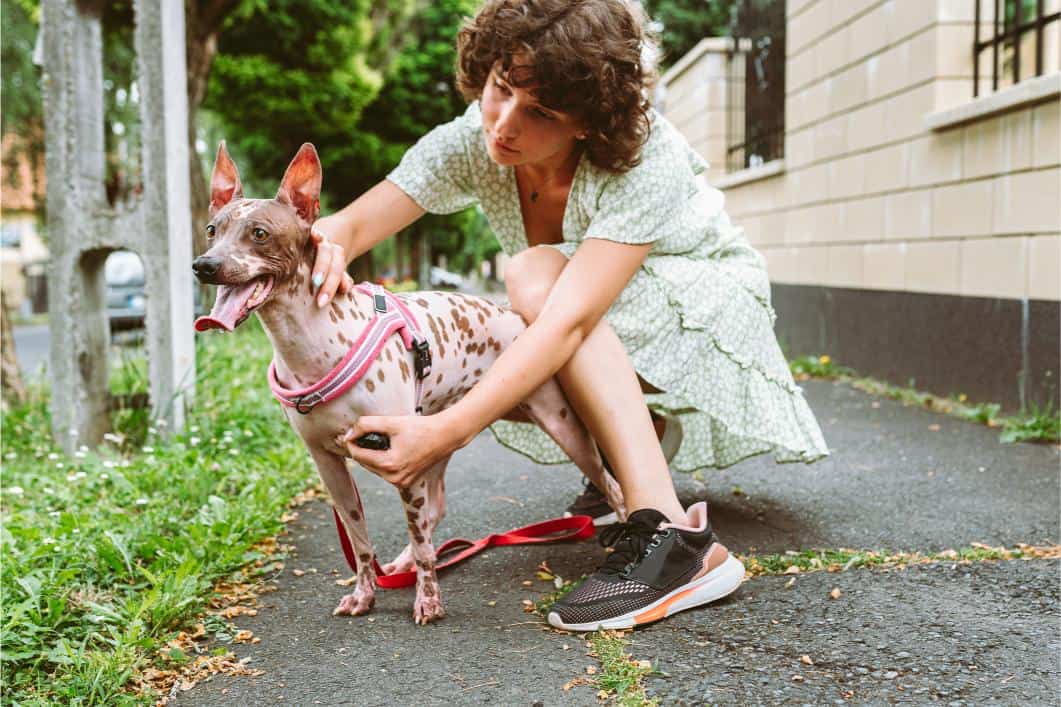
Summer is full of outdoor fun and time to make memories with your family—both human and furry. While we can all enjoy the freedom of a beautiful summer day, there are some elements of the season that can be problematic for your pets. Keep an eye out for these summer skin problems in pets so you know how to get them the relief they need.
What’s Up With Pet Allergies?
Pet allergies largely affect the skin and can occur regardless of the season. However, this time of year can overwhelm a pet’s immune response to various triggers including pollen, mold, grass, and smoke. If you see your pet scratching constantly, pawing at their face, licking their paws, or rubbing against the carpet or furniture, they might be having skin issues. Left alone, pets may inadvertently cause a secondary skin infection if bacteria enters open wounds.
Bugs, Bugs, and More Bugs
Fleas can create real problems in pets with little or no defenses. In addition to causing seriously itchy skin, many pets develop flea allergy dermatitis, a reaction to flea saliva that yields loads of tiny red bumps and itchiness. You can combat this by:
- Staying in front of any flea-related issues with a parasite prevention medication. This will also prevent problems associated with ticks, mosquitoes, and internal parasites.
- Conducting daily skin checks.
- Applying certain products to the yard and garden that aim to decrease the prevalence of parasites (be sure to follow the guidelines and only your pet access once the products dry).
Summer Skin Issues
Swimming and splashing around in water is a summer must, but it can irritate your pet’s skin. If a pet isn’t thoroughly dried off, their fur coat can create perfect conditions for bacterial and fungal growth. This is a common dermatological problem known as hot spots or moist dermatitis. Red, inflamed patches of skin can develop. Watch for excessive scratching, open sores, and oozing wounds. Additionally:
- Regular grooming is essential, especially for thicker or longer coats. Not only less likely to mat or trap debris, shorter hair improves air circulation.
- Use a dry towel and a pet-safe hair dryer to ensure even removal of moisture.
Summer Pet Health
Dogs, especially those with short, light-colored hair are vulnerable to the sun’s harmful UV rays. Invest in a pet-safe sunblock to apply to sunburn-prone parts like the nose and ears, and see if they will tolerate items of clothing like a shirt or hat to protect their skin. Be sure that the surfaces they walk on cannot burn their feet, and opt for walks around sunrise and sunset.
Heat rash is another concern for pets and can be characterized by small red bumps on the skin. Be sure to wash their feet regularly as sweat glands in the paw pads can become clogged. Avoid extreme exertion during the hottest parts of the day and be sure to provide lots of cool, fresh water.
If you have additional questions about your pet’s skin health this summer, please call Oroville Animal Health Center at (530) 533‑7513.
